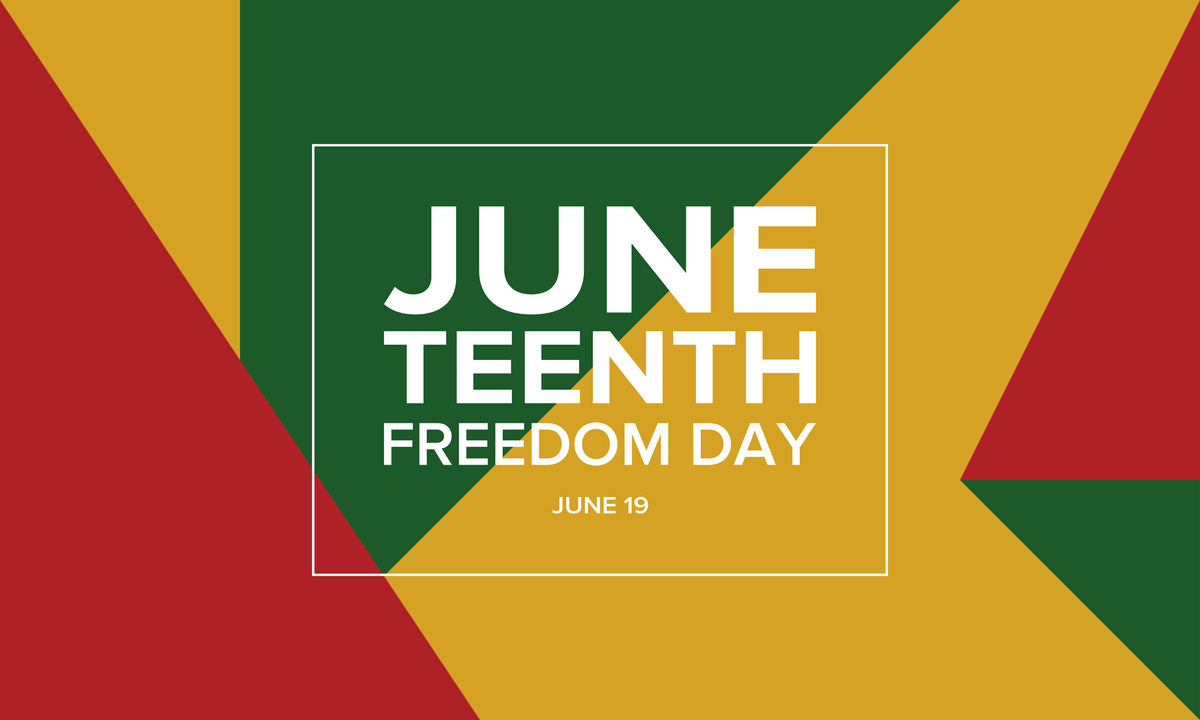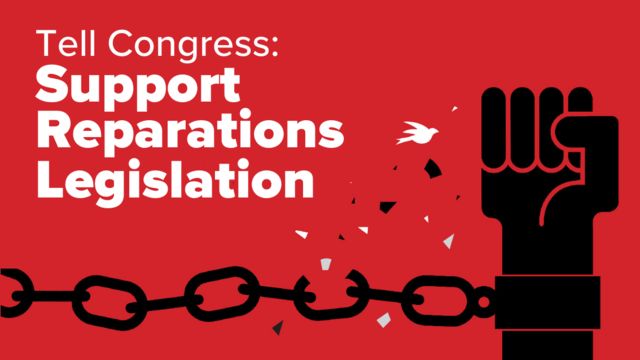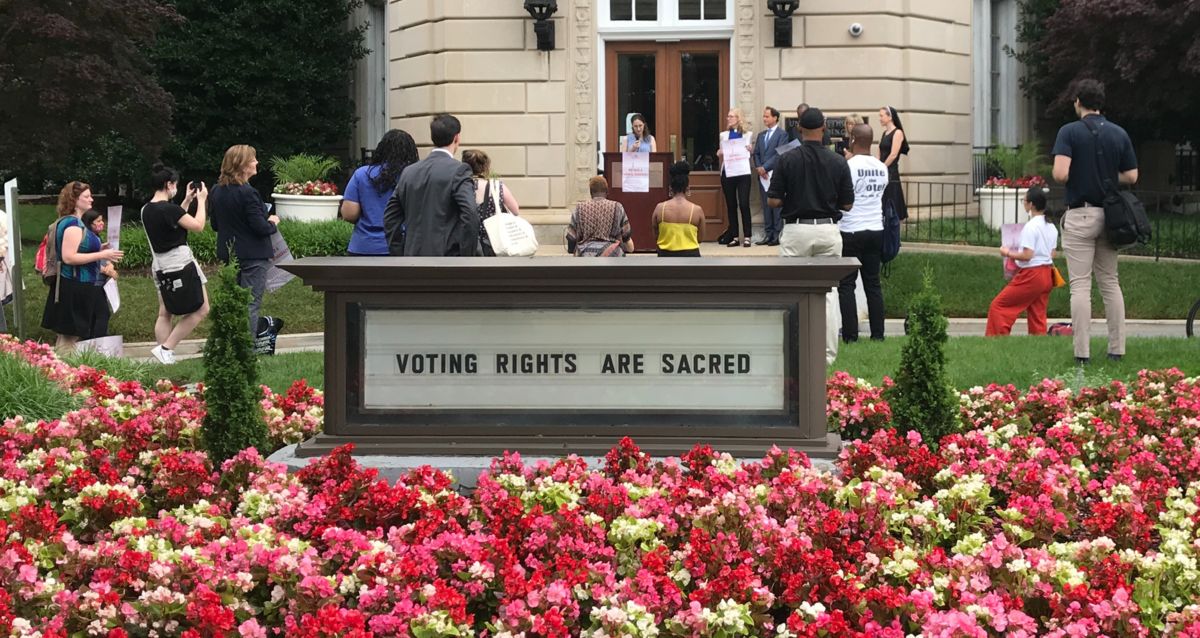Juneteenth: A Day On, Not a Day Off
How to put your faith in action on Juneteenth

Juneteenth is a day of reflection and celebration. The oldest national celebration of the day that ended slavery in the United States is a reminder of our call for justice. While we can celebrate the strides made toward racial equality, we are invited to reflect on the work that is yet to be done.
Church and Society will commemorate the day by closing its office on Friday, June 18. Juneteenth is celebrated annually on June 19 but the holiday falls on a Saturday this year. For the second year, we are observing Juneteenth as a holiday on Friday as a way to recognize the importance of the day.
A Day On, Not a Day Off
Our recognition of Juneteenth as a paid holiday is not a day off. Instead, it’s a day for action and reflection. At Church and Society, we are using the time to contemplate the calling for reparations, and reflecting on how our faith calls us to dismantle systemic racism.
We invite you to join us in this effort. Make this Juneteenth a day of action and a time of reflection. Here are a few ways in which you can participate with us:
Voting rights
Voting rights are under attack across the country. The Brennan Center for Justice reports that at least 22 bills designed to restrict the right to vote have been enacted in 14 states as of mid-May this year. More are on the way to becoming law. More than 60 such laws are moving through 18 state legislatures. Nearly 400 restrictive bills have been introduced by lawmakers in 48 states in the 2021 legislative sessions.
The suppression of voter turnout affects communities of color in particular. This is part of the systemic racism the United Methodist Church addresses in 2016 Book of Resolutions 3378: Racism and Economic Justice Against People of Color. Specifically, the resolution calls for strengthening voting rights protections and reinstating those rights that have been lost.
I encourage you to contact your U.S. Senators and urge them to support laws that guarantee the right to vote for all, including our siblings of color. You can ask your Senators to support S.1, For the People Act here.
Police reform
Despite the climbing death toll of our Black siblings by police, police reform legislation has not been prioritized at the federal or state levels. The need for reform of our criminal justice system is long overdue, as it continues to uphold white supremacy and racism. The system has allowed police officers, white terrorists, and others to murder Black people with impunity. While we celebrate the guilty verdict in the Derek Chauvin trial in the murder of George Floyd, this kind of result is still extremely rare. More work needs to be done. Legislative reform is necessary for justice.
United Methodists believe that justice is an imperative prerequisite for true peace. Federal reforms are only a start in addressing injustice. I encourage you to contact your members of Congress and ask them to support police reform legislation. You can send a letter to them here.
Reform is needed for the families of Dominique Williams, James Lionel Johnson, and Daunte Wright, who are among the victims of fatal police shootings in 2021. You can see more names and read their stories at sayevery.name. Reform is needed for the parents who have to have “the talk” with their young children on how to handle police confrontation. Reform is needed to ensure no more lives are lost.
Reparations
Because of persisting inequities like the racial wealth gap and growing calls for a meaningful reckoning with past wrongs, we are witnessing new and exciting conversations around reparations for descendants of slavery. The United Methodist Church officially supports reparations and calls on Congress to pass H.R. 40, the bill that would authorize a study on reparations (Resolution 3066).
Tell your Member of Congress to support H.R. 40, and join us for our webinar series to learn more about how we can explore our Christian response to reparations.
Our Calling
Confronting the sin of racism is part of our baptismal calling as United Methodists as we vow to “accept the freedom and power God gives you to resist evil, injustice, and oppression in whatever forms they present themselves?” This vow acknowledges the partnership between us and God to seek God’s shalom.
Our Social Principles call us to recognize racism as sin and to affirm the worth of all, as all people bring the gifts of their ethnic histories and cultures together to create the beautiful tapestry that is humanity.
This Juneteenth, may we move beyond performative advocacy and symbolic expressions of solidarity to actions that challenge unjust systems and the sin of racism. May we not simply be hearers of the word but doers of the word (James 1:22). May we work together for racial justice and equity not only on Juneteenth but every day. The Gospel calls us forward in this work.

